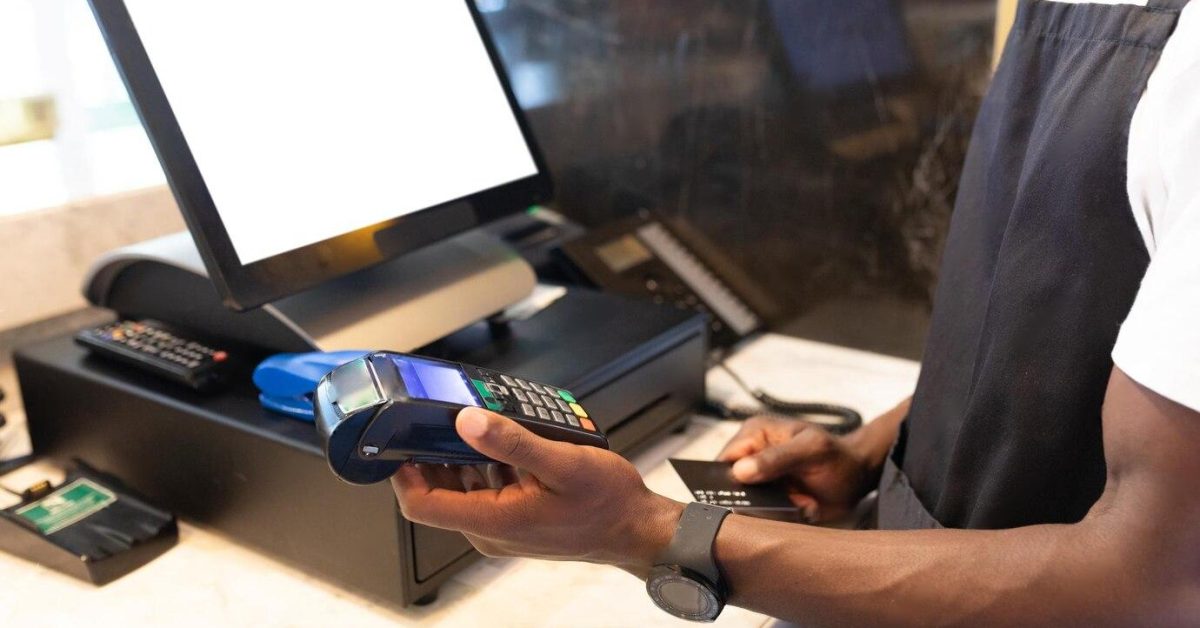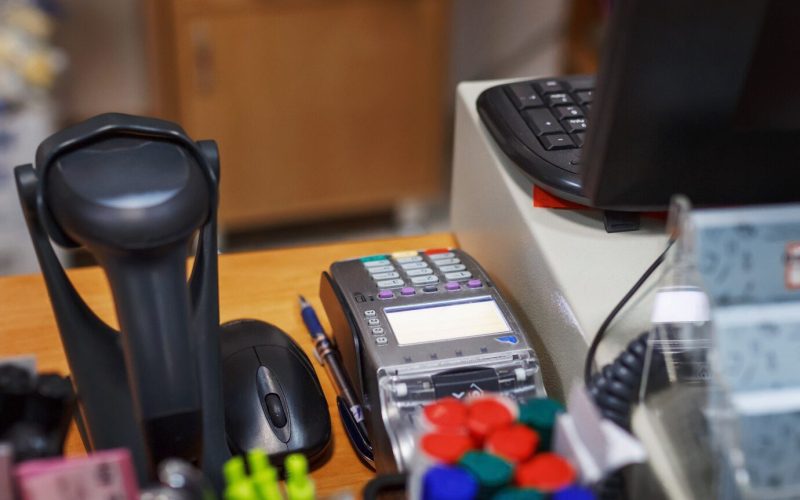
POS (Point of Sale) hardware refers to the physical components used in a point-of-sale system to process customer transactions, manage sales, and improve overall business efficiency. POS hardware includes essential devices such as touch screen terminals, receipt printers, barcode scanners, cash drawers, and payment card readers.
A well-optimized POS system allows businesses to speed up checkouts, reduce errors, track inventory in real time, and enhance customer experience. Whether for a retail store, restaurant, or mobile business, selecting the right POS hardware is critical to ensuring smooth operations and meeting the unique demands of different industries. Investing in reliable, high-performance POS hardware not only improves transaction efficiency but also supports business growth by streamlining workflows and increasing customer satisfaction.
Essential Components of POS Hardware
A POS (Point of Sale) system is composed of multiple hardware components that work together to process transactions efficiently. Each component plays a crucial role in enhancing the speed, accuracy, and functionality of the POS system.
1. POS Terminal (Touchscreen Monitor or Computer)
- The main device that runs the POS software and processes sales transactions.
- Can be a desktop terminal, tablet, or mobile POS system, depending on the business setup.
- Touchscreen interfaces are common for fast and user-friendly operation.
2. Receipt Printer
- Prints customer receipts, invoices, and order confirmations instantly.
- Types of receipt printers:
- Thermal Printers – Inkless, fast, and widely used for clear, smudge-free receipts.
- Dot Matrix Printers – Uses ink ribbons; ideal for kitchen environments due to heat resistance.
- Inkjet Printers – Less common but used for printing high-quality receipts and logos.
3. Cash Drawer
- Securely stores cash, coins, and receipts for businesses that accept cash payments.
- Typically connected to the POS terminal and opens automatically after a transaction.
- Often equipped with multiple compartments for organized cash management.
4. Barcode Scanner
- Scans product barcodes for quick and accurate item lookup and checkout.
- Reduces manual data entry errors and speeds up transaction times.
- Available in different formats:
- Wired Barcode Scanners – Directly connected to the POS terminal.
- Wireless/Bluetooth Scanners – Provide flexibility and mobility for scanning items.
5. Card Payment Terminal
- Accepts credit cards, debit cards, mobile wallets (Google Pay, Apple Pay), and contactless payments.
- Can be integrated with the POS system for seamless transactions or standalone for independent processing.
- Supports chip, magnetic stripe, and NFC (Near Field Communication) transactions for enhanced security.
6. Customer Display Screen
- Shows pricing, promotions, and order details for customers during checkout.
- Enhances transaction transparency and improves the overall shopping experience.
- Some models also support interactive touchscreen displays for customer engagement.
7. POS Scale (For Weighing Items)
- Used in grocery stores, delis, bakeries, and retail businesses that sell products by weight.
- Connects directly to the POS system to automatically calculate prices based on weight.
- Ensures accurate pricing and reduces manual errors.
By selecting the right POS hardware components, businesses can optimize their checkout process, improve operational efficiency, and provide a better experience for customers.
Additional POS Hardware Options
In addition to the essential POS components, businesses can integrate advanced hardware options to improve efficiency, speed, and customer experience.
1. Kitchen Display System (KDS)
- Used in restaurants, cafés, and fast-food chains to send orders directly from the POS system to the kitchen.
- Replaces traditional paper order tickets, reducing miscommunication and improving order accuracy.
- Enhances kitchen workflow by prioritizing orders, tracking preparation times, and minimizing delays.
2. Handheld POS Devices
- Mobile POS solutions ideal for tableside ordering, curbside pickup, and outdoor sales.
- Common in restaurants, food trucks, and retail stores for a seamless checkout experience.
- Offers wireless connectivity (Wi-Fi/Bluetooth) and built-in payment processing to improve service speed.
3. Self-Checkout Kiosks
- Allows customers to scan, bag, and pay for items independently, reducing wait times.
- Common in supermarkets, convenience stores, and fast-food restaurants to streamline checkout.
- Supports cash, card, and mobile payments for a flexible and efficient shopping experience.
Adding these advanced POS hardware solutions can significantly enhance business operations, improve customer service, and boost overall efficiency.

Choosing the Right POS Hardware for Your Business
Selecting the right POS hardware depends on the type of business, customer needs, and operational requirements. Below are tailored recommendations for different industries.
1. Retail POS Hardware
Retail businesses require a fast and accurate checkout process to handle customer transactions efficiently. Essential POS hardware includes:
- Barcode Scanners – Speeds up product lookup and checkout.
- Receipt Printers – Provides customers with purchase confirmations and transaction records.
- Cash Drawers – Securely stores cash for businesses accepting physical payments.
- Customer Display Screens – Enhances transparency by showing itemized pricing and promotions.
2. Restaurant POS Hardware
Restaurants and food service businesses need efficient order management and payment processing to enhance customer experience. Recommended POS hardware includes:
- Kitchen Display Systems (KDS) – Sends orders directly to the kitchen, reducing errors.
- Order Printers – Prints kitchen tickets for a streamlined food preparation process.
- Handheld POS Devices – Allows tableside ordering and payment for faster service.
- Spill-Resistant Receipt Printers – Ideal for restaurant environments where durability is essential.
3. Service-Based Business POS Hardware
Businesses in the service industry, such as salons, spas, and repair shops, benefit from mobile-friendly and scheduling-oriented POS solutions. Recommended hardware includes:
- Mobile POS Solutions – Enables service professionals to accept payments anywhere.
- Scheduling Software Integration – Helps manage appointments and customer bookings.
- Card Payment Terminals – Supports seamless cashless transactions for customer convenience.
Choosing the right POS hardware ensures smoother operations, faster transactions, and an enhanced customer experience.
Investing in the right POS hardware and cloud-based POS system is essential for streamlining transactions, improving efficiency, and enhancing customer experience. Whether in retail, food service, or a service-based business, having the proper POS terminals, barcode scanners, receipt printers, and payment processing devices ensures smooth daily operations.
For small businesses, a simple setup with a POS terminal, receipt printer, and card payment terminal may be sufficient. Mid-sized and large businesses may require advanced solutions like kitchen display systems, self-checkout kiosks, and handheld POS devices for improved speed and customer service.
When selecting POS hardware, consider factors like business size, industry requirements, and budget to ensure a system that meets your needs. Upgrading to the right POS hardware will help your business stay competitive, reduce errors, and provide a seamless checkout experience.
Ready to enhance your business with the best POS hardware? Book a free demo now!



Leave A Comment